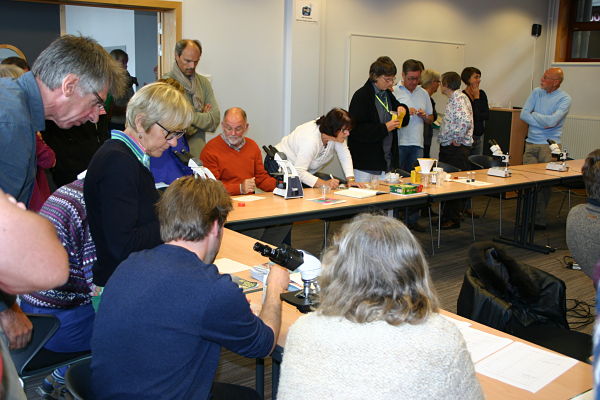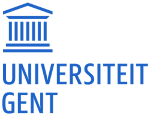Outreach activity for nature guides
 In September, researchers from the Protistology & Aquatic Ecology lab and the Laboratory for Environmental Toxicology participated in an outreach activity for nature guides, entitled ‘a beach lab for everyone’. The course consisted of 3 days and elaborated on 5 themes: sand, salt, plankton, microplastics and eutrophication.
In September, researchers from the Protistology & Aquatic Ecology lab and the Laboratory for Environmental Toxicology participated in an outreach activity for nature guides, entitled ‘a beach lab for everyone’. The course consisted of 3 days and elaborated on 5 themes: sand, salt, plankton, microplastics and eutrophication.
On the first day, Lisbeth Van Cauwenberghe explained why (micro)plastics are both a local and a worldwide problem. Plastic pollution is a lot more than the famous garbage islands in the middle of the ocean. Plastics and their degradation products, the so-called microplastics, are present throughout the marine environment: from highly populated areas to remote islands, and from coastal zones to the ‘pristine’ deep sea. Not only the organisms inhabiting the world’s ocean suffer from the effects of (micro)plastic pollution, but also humans are under threat from this pervasive emerging pollutant.
On the second day, Lander Blommaert talked more about eutrophication. The oceans are receiving more nutrients, and in particular phosphates and nitrates, which promotes algal growth. A massive growth of algae is called a bloom and can be harmful if the algal biomass starts decaying. During this decay oxygen is consumed and results in a rapid reduction in the water's dissolved oxygen concentration. This can cause shellfish mortality. An example of these massive blooms is Phaeocystis which causes the foam on the beach. Some algal blooms are also capable of producing toxic substances.
Over these 3 days, colleagues from the Institute for Agricultural and Fisheries research, Flanders Marine Institute, the Royal Belgian Institute of Natural Sciences, and the Belgian beach workgroup provided interesting sessions for nature guides as well.
Pictures by Claude Willaert
